Age Groupers in Marbella: Balancing Med School Residency and 70.3 Training with Canada’s Rachel Eikelboom
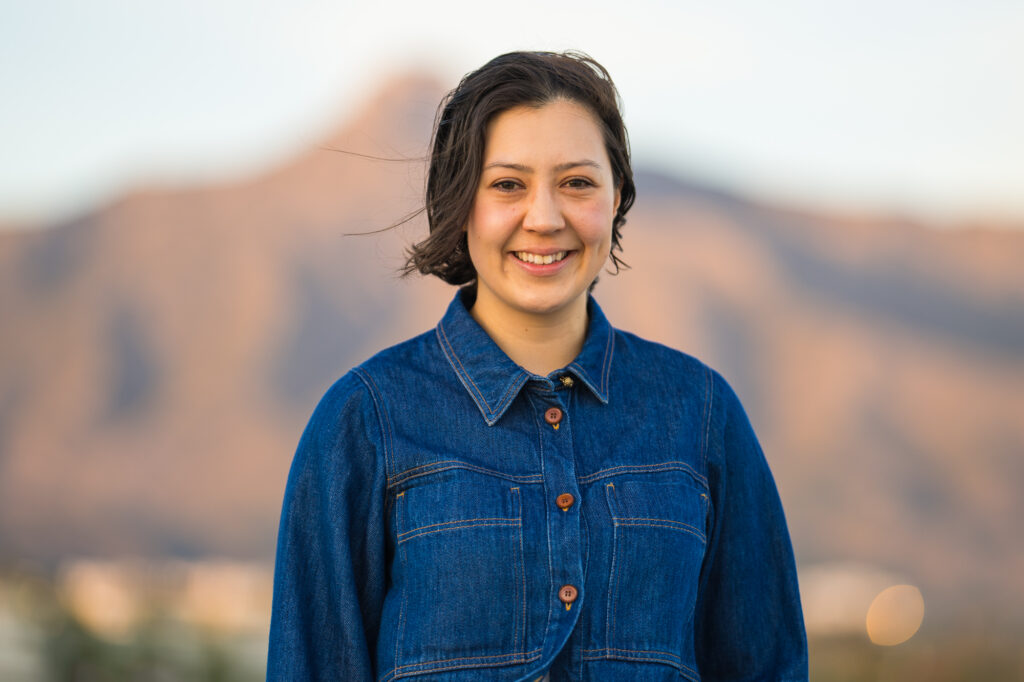
Photo: Kevin Mackinnon
No matter the athlete at an IRONMAN, 70.3 or any triathlon, they have an interesting story to tell about how they got to the start line. For Canadian Rachel Eikelboom, that story involves a tremendous amount of studying, school and work, as well as plenty of training.
The 32-year-old Eikelboom is in the final year of her cardiac surgery residency back home, but she found the time to make it over to Marbella, Spain, to race her first IRONMAN 70.3 World Championship this weekend. There were a lot of hurdles she had to clear along the way in order to make it to the worlds, but she is in Marbella ready to race and give it her all, just like she does in every other arena of life.
A ‘Shameful’ Australian
Eikelboom grew up in both Australia and Canada, spending the first five years of her life Down Under, then moving to the Great White North until she was eight, then back to Australia before returning to Canada when she was a teenager. She says she’s “been a cyclist and a runner” for a long time, and since she’s Australian, she figured it only made sense to give triathlon a try. There was only one problem: swimming was always a struggle for her.
“I never knew how to swim properly, and that felt a bit shameful since I’m Australian,” she says with a laugh. She says she could have survived if she was dropped into a random body of water, but when she first hit a pool to actually train, she only made it “half a lap before [she] had to stop and catch [her] breath.”
That would have been discouraging for most people — and it was likely discouraging for Eikelboom — but she refused to let it stop her from chasing her goal of becoming a triathlete. After all, Eikelboom has quite a bit of patience and determination — hence the more than a decade of post-secondary education and the nearly completed path to becoming a cardiac surgeon.
It was only three years ago that Eikelboom decided to get into triathlon, and now she’s getting ready to toe the start line of the 70.3 World Championship. So, how did she get here?
After finishing medical school, Eikelboom figured she had some time on her hands since she was “only” doing a PhD in cardiac surgery, so what better time to train for a triathlon.
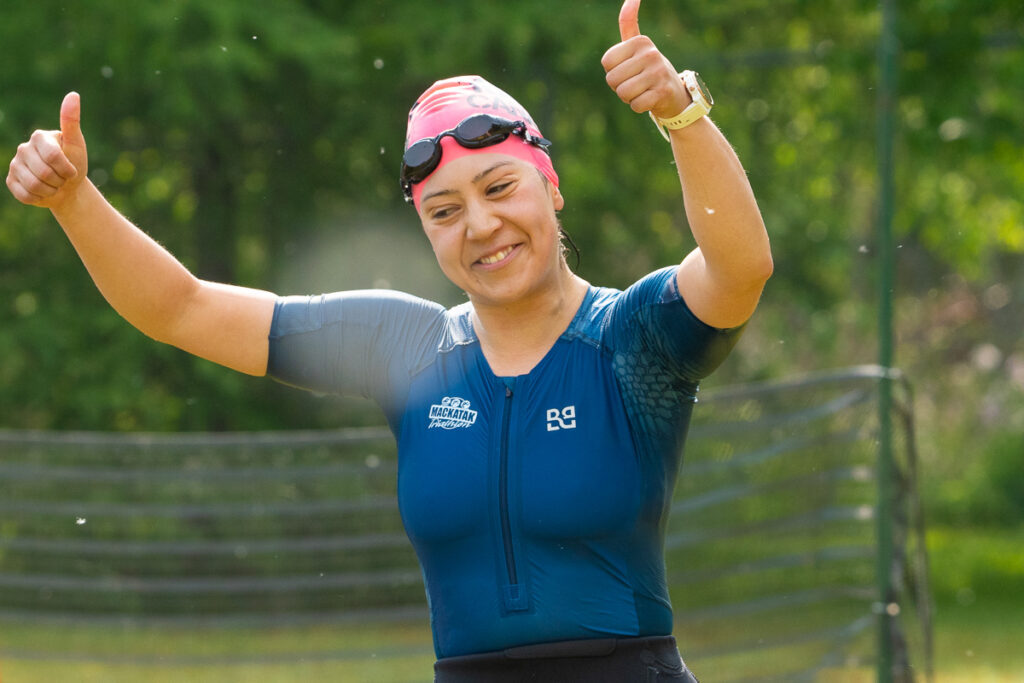
Happy to finish her first triathlon swim at the Gravenhurst Triathlon. Photo: Kevin Mackinnon
All in on Triathlon
“I started training around the end of the year and my first race was the following June,” she says. That was an Olympic-distance race in 2023, and she had plans to follow it up with a half.
“I was supposed to race 70.3 Mont-Tremblant, but it got cancelled because of the smoke [from nearby wildfires],” she says. Not wanting to put her fitness and training to waste, she signed up for 70.3 Musselman in New York State just a couple of weeks later.
After the cancellation in Mont-Tremblant, Eikelboom deferred her registration a year, but she missed the 2024 race, too.
“I really wanted to do that race,” she says, “but then my [school] program told me, ‘Oh, by the way, you’re going to do your pedatric rotation in Edmonton.'”
For anyone unfamiliar with Canadian geography, Edmonton is about a 36-hour drive (or four-hour plane ride) to Mont-Tremblant. The residency rotation would require Eikelboom to move in mid-June, and if she wanted to race as planned, she would pretty much have to turn right back around and return to the other side of the country. It simply didn’t make sense, so she shifted focus from Mont-Tremblant once again and signed up for 70.3 Penticton in British Columbia last August.
After a cancelled swim in Penticton, Eikelboom had a great race, and after she crossed the line, she saw that the results app said she was fourth in her age group.
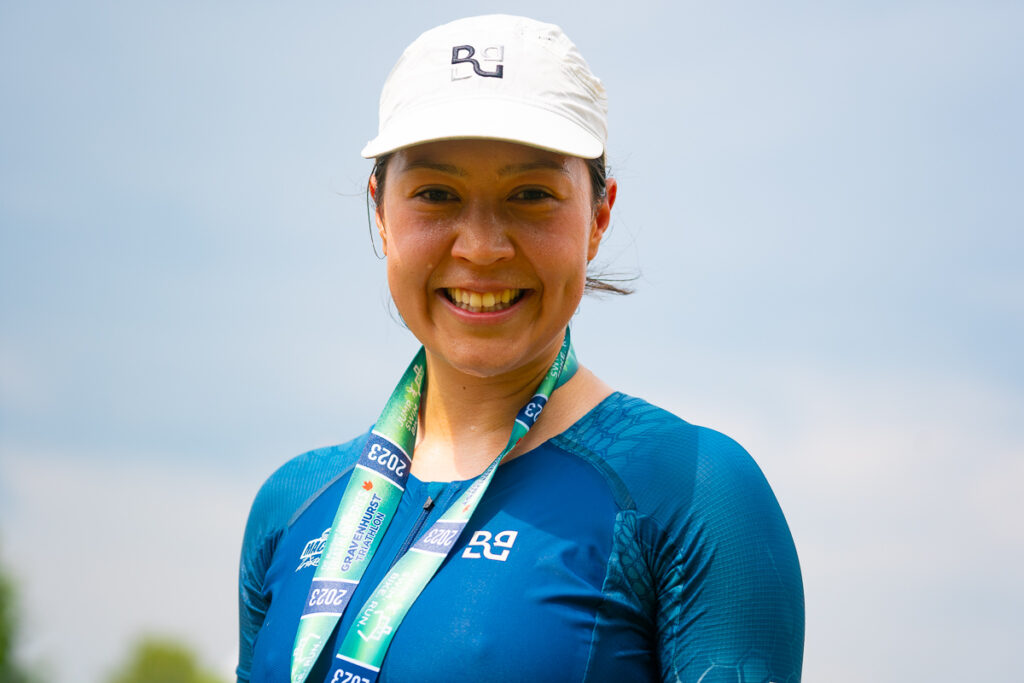
Photo: Kevin Mackinnon
“I was like, ‘I’m fourth? How is that possible?'” she recalls. Due to the cancelled swim, the athletes were sent off in a rolling bike start, so Eikelboom figured that she must have started well before some of her fellow 30 to 34 age groupers and that was why she was ranked so high. She waited for these other mystery athletes to finish and, she assumed, bump her down the results list.
“I kept refreshing the page,” she says. “But it never changed.”
Eikelboom says she had no plans to qualify for or shoot for the worlds when she entered that race or showed up to the event.
“I really had no clue it was even possible,” she says. When she finally accepted that there wasn’t a glitch and that she had actually finished fourth and earned a berth in Marbella, she called her coach (Slowtwitch.com senior editor Kevin Mackinnon).
“I pretty much asked if I had his permission to do it,” she says with a laugh. Unsurprisingly, Mackinnon was thrilled for Eikelboom and told her yes, she should definitely take the slot. Fourteen months later and she is ready to line up in Marbella, but the journey getting here was far from simple.
Training During Residency
If you’ve seen any medical or hospital show, you’ll know that residency is intense. Residents get the worst shifts, they work ridiculously long hours and they’re basically always tired. What these TV shows don’t feature are resident characters who are training for anything like a triathlon.
And why? Because it’s simply unfathomable for people to imagine doing a resident’s job and putting in the hours in training to get race-ready. It would feel to unrealistic to have a character who is that driven. And yet, that is exactly what Eikelboom does on a regular basis. She says it’s far from easy, but she pulls it off just the same.
“There are weeks where I’m more successful with getting all my workouts done,” she says. “And there are weeks where I don’t get too much finished. I mean, my hours are crazy.”
Eikelboom says she starts work at 6 a.m., but that is the only constant in her schedule. When she’ll finish a shift is up in the air.
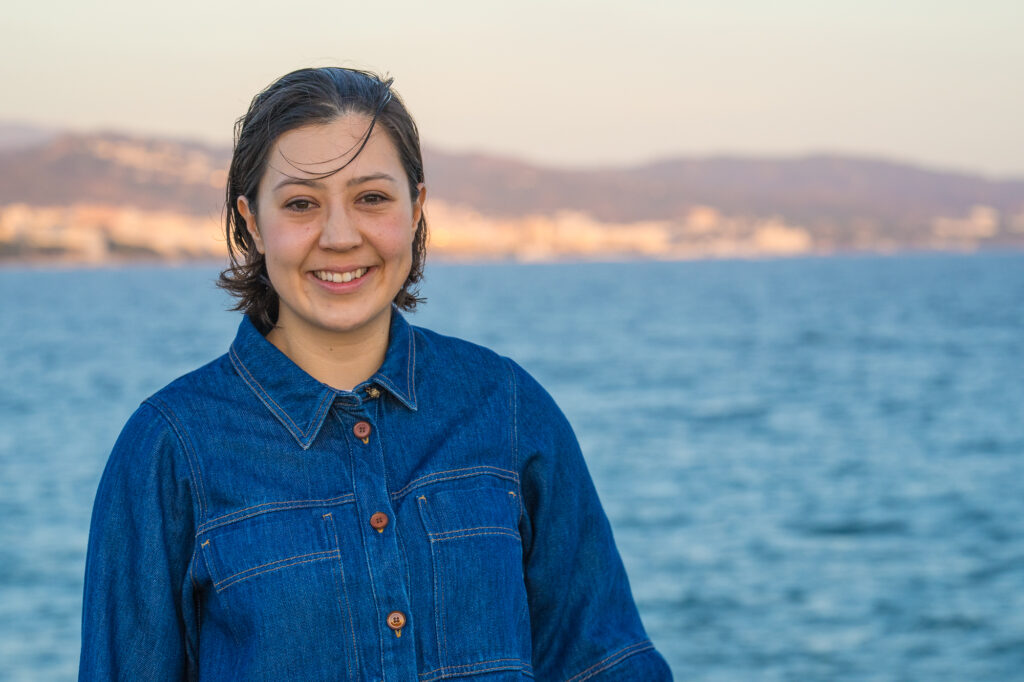
Photo: Kevin Mackinnon
“I never know what time I’m going to finish,” she says. That can make it rather difficult to plan for workouts. She is also on call one or two nights a week, and while she gets to go home if she’s not needed, she says she is “often at the hospital until late” on these days.
“Then on in every three or four weekends I work from Friday morning until Monday morning,” she says. “That’s just pure survival mode.”
Despite all of this, she still finds time to train when she can. She has learned to be quite flexible with her workouts, fitting them in where possible, and she has also accepted that perfection really isn’t an option when it comes to her training.
“I’m more of a Type A type of person, so I want to check everything off,” she says. “And I do get frustrated sometimes that I can’t do all my workouts. It’s not possible for me to be consistent.”
Racing Marbella
When asked about what it means to be racing at the 70.3 worlds, Eikelboom hesitates to answer. She puts a lot of thought into what she is going to say, choosing her words carefully.
“I don’t like saying this out loud,” she starts of slowly. “But, like, if someone else told me they were doing [residency and training], I would think that’s amazing. And so maybe I can say that about myself as well.
Like, I feel like it’s really cool in context for me to be here.”

Eikelboom and the other athletes racing in Marbella will get some stunning views on the bike course. Photo: Kevin Mackinnon
This is a refreshing take, because so often, triathletes will give the stock modest response to questions like these (although Eikelboom’s answer was in no way immodest by any stretch of the word). Completing a triathlon is impressive. Qualifying for worlds is impressive. Balancing work, family life and training is impressive. So few people would dare to say so when talking about themselves, though, and that is why it was nice to hear Eikelboom admit it — even if she did take 20 or 30 seconds to work up the courage to say it out loud.
What Eikelboom has accomplished in order to make it to Marbella is inspiring, and so is the work that all of the other 6,300 athletes racing the world championship have put in over the past few months, year, decade and more. If you’re one of the athletes in Eikelboom’s position, it can feel wrong to acknowledge the weight of your accomplishments, but take a lesson from her and admit it to yourself. It’ll probably feel good to say out loud.

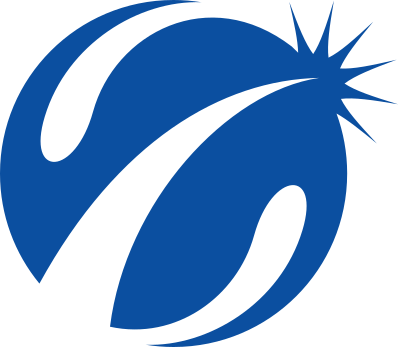

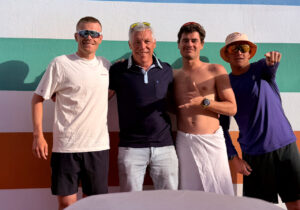
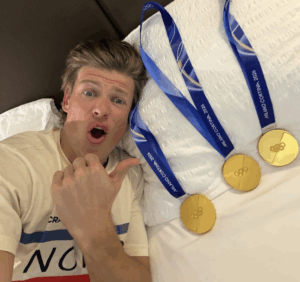
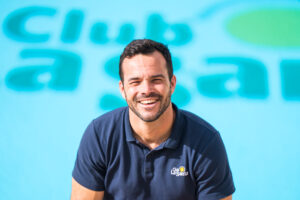

Start the discussion at forum.slowtwitch.com